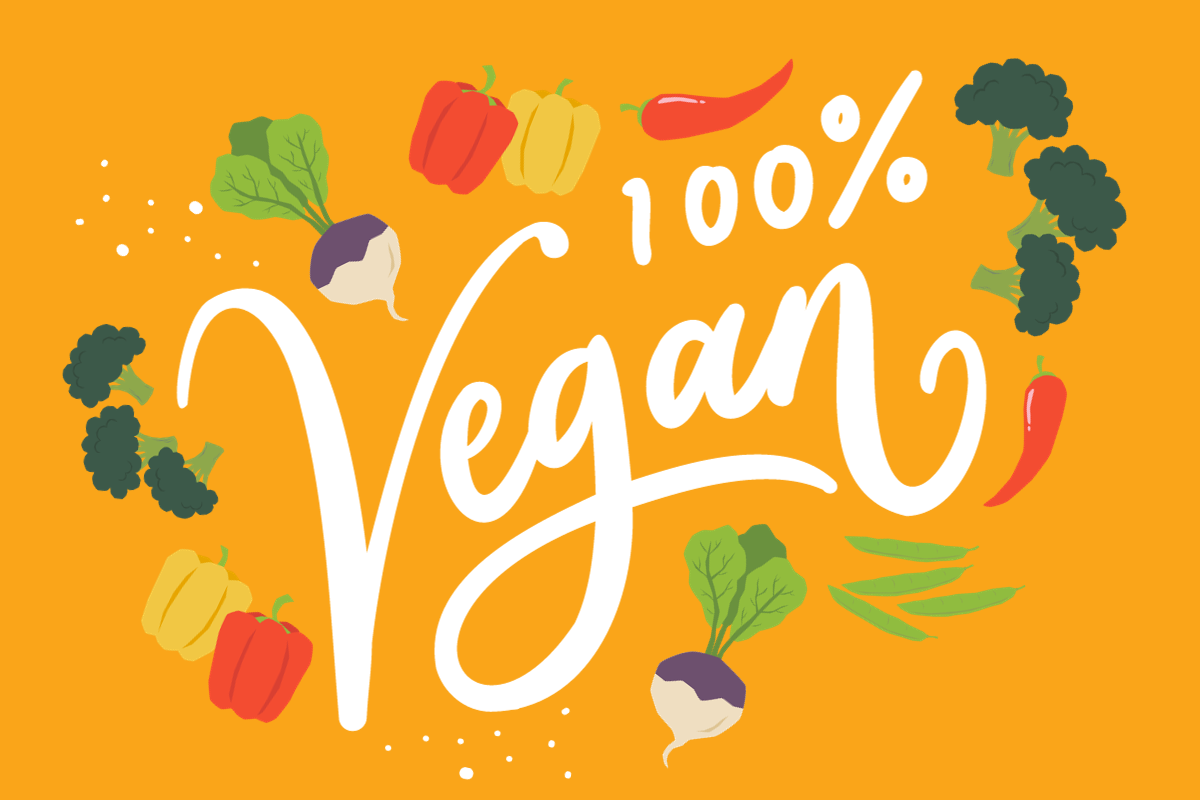If you aren’t vegan already, World Vegan Day is the perfect day to begin a smarter, more respectful way of living, where animals are not tortured and killed because they’re considered your food.
Today, we’re also offering the opportunity to receive our very own vegan cookbooks as a gift when you donate! A donation of $25 will receive our Dining With Friends cookbook and a donation of $50 will receive both Dining With Friends and Best of Vegan Cooking. Each cookbook is filled with flavorful, delicious vegan recipes representing cuisines from around the globe.
For more reasons to choose a vegan lifestyle, check out our facts below and visit our “Vegan Life” page on our website for more information.
Go vegan for animals
If you aren’t vegan already, World Vegan Day is the perfect day to begin a smarter, more respectful way of living, where animals are not tortured and killed because they’re considered your food.
Just how many animals are killed for food in the U.S. each year? It’s unthinkable.
In 2020, for example, the United States Department of Agriculture reported that 9.76 billion domestic animals were slaughtered, including:
●9,346,660,000 chickens
● 223,003,000 turkeys
● 33,242,000 cattle (incl. calves)
● 131,563,000 pigs
● 22,484,000 ducks
● 2,225,000 sheep (incl. lambs)
Meat and dairy are subsidized by our federal government, and unfortunately are a symbol of status. The meat industry is fueled by the expansion of animal feeding operations that not only capitalize on misery and the ruination of much of the earth’s land, but also pollute water, and suck up an increasing amount of corn, soy and other grains that could be fed to humans directly. According to the United Nation’s Food and Agriculture Organization, meat production generates a fifth of the world’s greenhouse gases, outpacing transportation. Because so much grain in the U.S. feeds cows, pigs and chickens, three-quarters of all water quality problems in our streams and rivers results from animal farming.
If that’s not sickening enough, the USDA’s in-house wildlife killing program kills hundreds of thousands of native wild animals annually because of so-called “conflicts” with cattle, sheep and other doomed livestock or potential conflicts. IN 2021, the agency killed more than 400,000 native wild animals.
And the Bureau of Land Management rounds up and imprisons hundreds of America’s beloved wild horses who live on federal public lands because of the meat industry. The BLM ripped 5,260 wild horses from the range in 2023 so far, and the agency is poised to harm more than 8,000 in 2024.
Consuming animals is a moral issue. If you care about animals, the environment, your health and the climate crisis, be vegan!
Go vegan to combat the climate crisis
The more carbon dioxide in the atmosphere, the warmer the planet becomes, so it’s incumbent on us to curb carbon emissions by shunning a diet reliant on animal farming.
If you are concerned about the climate crisis and want to help stop it from intensifying, adopt a vegan diet. The data showing the profit-driven damage to the earth caused by the meat and dairy industries continue to pile up.
Most recently, research from the University of Oxford found that, compared to meat-heavy diets, vegan diets resulted in 75 percent less land use, 54 percent less water use, and 66 percent less biodiversity loss. In terms of greenhouse gas emissions, people who ate more than 3.5 ounces of meat daily accounted for 22.5 pounds of carbon dioxide emissions a day due to, among other variables, the farming of livestock and land used to grow animal feed. Fish eaters accounted for 10.4 pounds of carbon dioxide a day, and vegetarian diets produced 9 pounds of carbon dioxide daily. Vegan diets had the lowest totals, accounting for 5.4 pounds of carbon dioxide a day.
Outpacing the transportation sector, animal agriculture and land use directly accounts for 18.4% of global greenhouse gas emissions, according to a report published by Climate Watch and the World Resources Institute. The food system as a whole – including refrigeration, food processing, packaging, and transport – accounts for around one-quarter of greenhouse gas emissions. Beef production–which according to the study contributes 25% of all food-based greenhouse gas emissions–is by far the biggest culprit, followed by cow’s milk, pork, and chicken. The publication notes that the provision of adequate grazing land and food for livestock fuels deforestation, while the animals also produce tremendous quantities of methane, a greenhouse gas found to be up to 87 times more potent than carbon dioxide over a 20-year period.
Plant Power
FYI, in addition to saving the planet, a vegan diet has health benefits as well. We interviewed four elite athletes, including an Olympic medalist in figure skating and an world-renowned ultra runner for our quarterly magazine Action Line and all of them said a vegan diet helps them rise above the competition with their stamina, endurance and focus. On July 12, 2015, ultra runner Scott Jurek, a vegan since 1999, became the fastest person to thru-hike the Appalachian Trail. Fueled by his plant-based vegan diet, it took Jurek 46 days, eight hours and seven minutes to travel across 14 states from Georgia to Maine, beating the record by three hours and 13 minutes!

